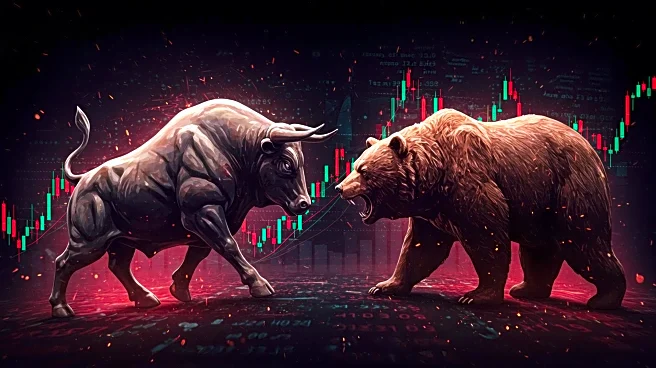What's Happening?
Paramount Skydance, a newly formed entity from the merger of Paramount and Skydance, is experiencing significant volatility in its stock price, characteristic of meme stocks. The merger was followed by a deal with UFC and its parent company TKO, making Paramount+ the new streaming home for UFC events in the U.S. This week, the stock has seen dramatic price swings, including a 60% increase at one point, before settling with a 37% rise. David Ellison, the CEO of Skydance, will lead the new company, while Jeff Shell, former NBCUniversal boss, will serve as president. The merger allows Shari Redstone to cash out her controlling stake in Paramount, which she held through National Amusements.
Why It's Important?
The volatility in Paramount Skydance's stock highlights the impact of meme stock dynamics on traditional media companies. The merger and subsequent UFC deal position Paramount Skydance to leverage streaming services, a critical area for growth in the entertainment industry. The involvement of high-profile executives like David Ellison and Jeff Shell suggests strategic shifts aimed at expanding content offerings and reducing operational costs. This could influence the competitive landscape in streaming services, affecting stakeholders such as investors, content creators, and consumers. The merger also marks a significant transition for Shari Redstone, impacting the governance and strategic direction of the company.
What's Next?
Paramount Skydance is expected to focus on growth strategies and cost reduction, as favored by Wall Street analysts. The company will likely announce further plans for its streaming and linear TV businesses, which could include new content partnerships or technological investments. Stakeholders will be watching for how the company navigates the competitive streaming market and adapts to changing consumer preferences. The stock's volatility may continue as investors react to these strategic moves and broader market trends.
Beyond the Headlines
The merger and stock volatility underscore the evolving nature of media conglomerates in the digital age. As traditional media companies merge with newer entities, they face challenges in integrating diverse business models and cultures. The focus on streaming services reflects broader industry shifts towards digital consumption, raising questions about the future of linear TV and traditional cable channels. Ethical considerations may arise regarding content distribution and consumer data privacy in the streaming sector.










